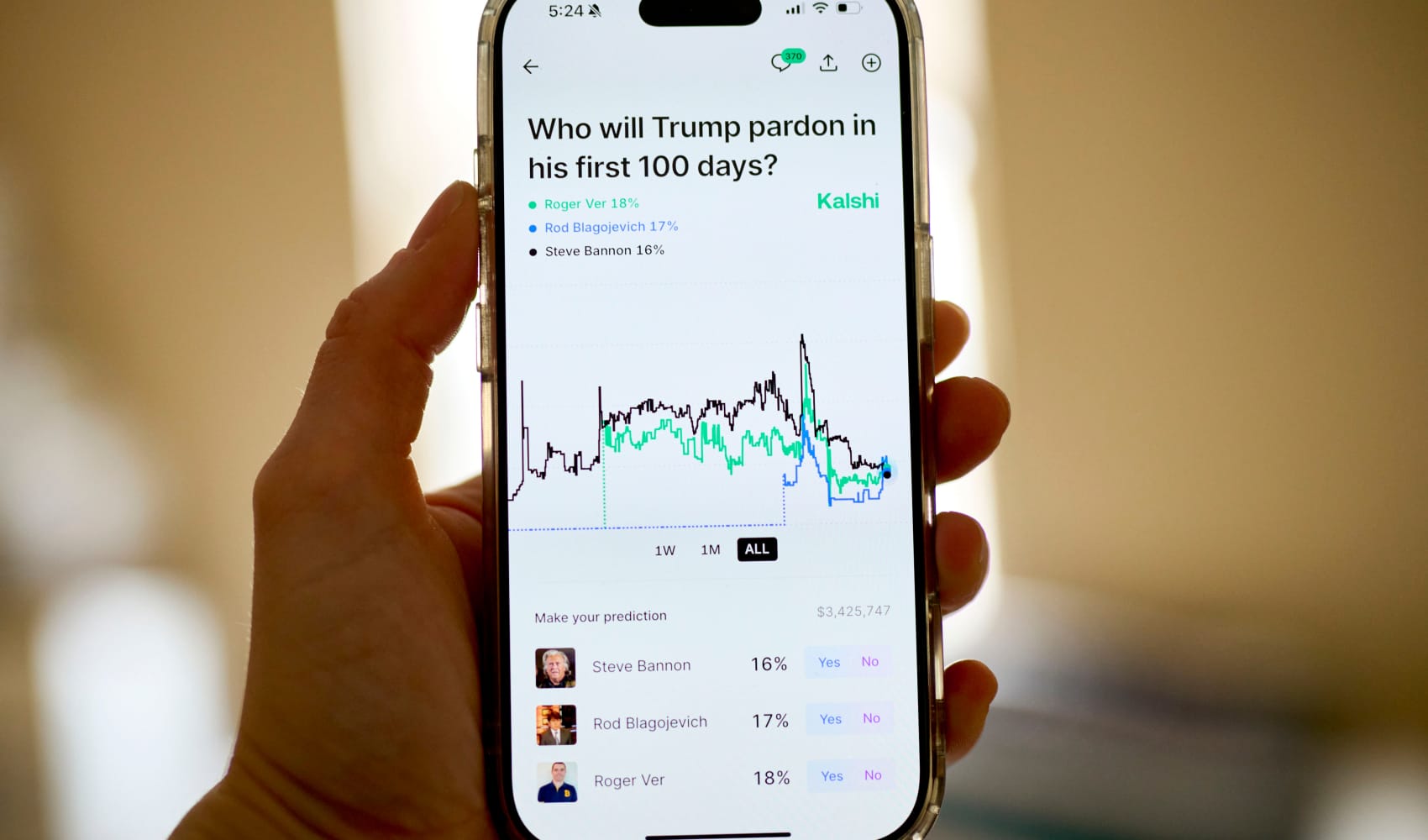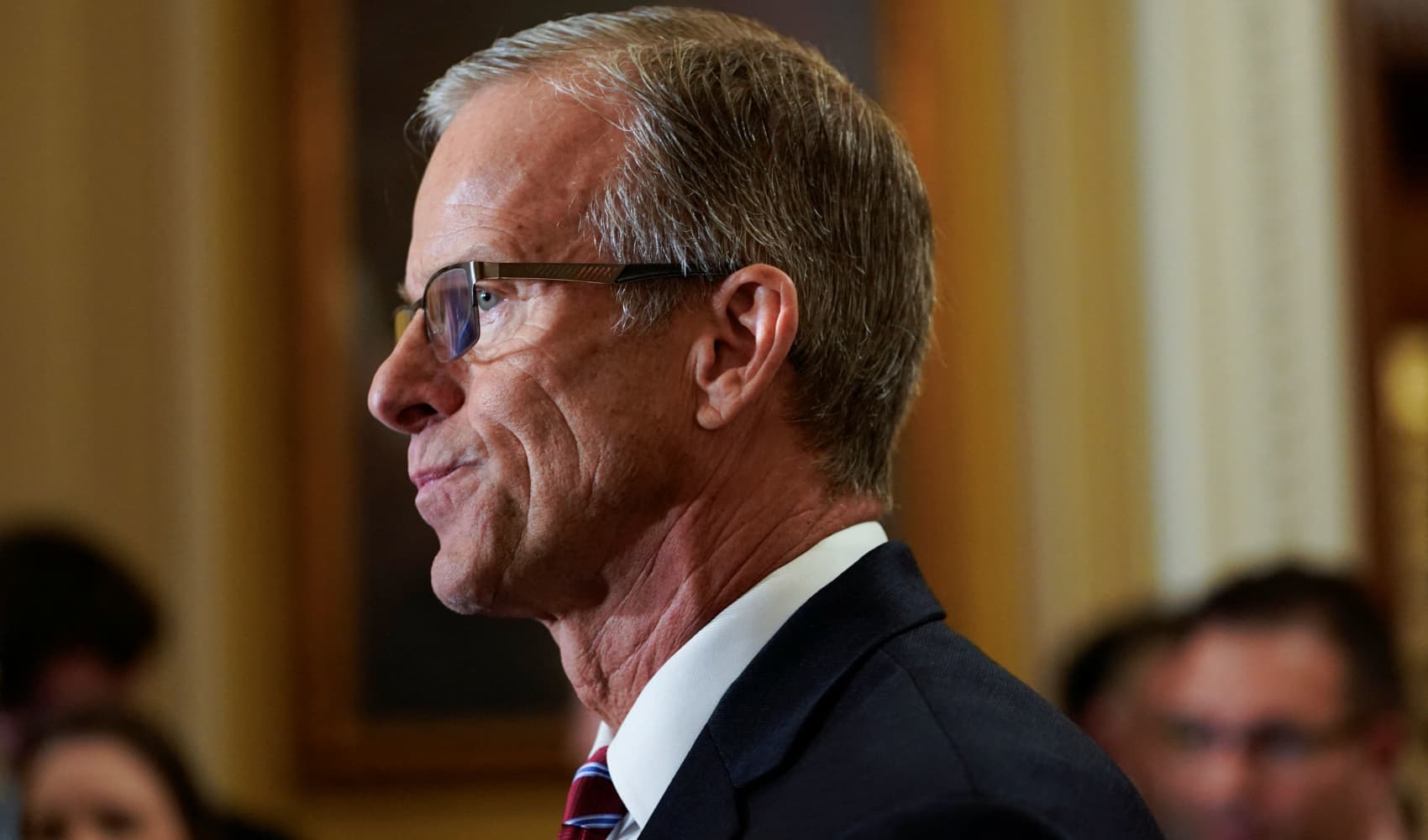Trump Rewrites Crypto Rules: Industry Cheers 180 Pivot!
Trump's Crypto Revolution: First 100 Days Spark Industry Jubilation
Introduction: A Crypto Renaissance?
President Donald Trump's return to the White House has ignited a firestorm of activity in the crypto world. While his overall approval numbers might be lagging compared to administrations of the past at this 100-day milestone, the cryptocurrency community is singing a different tune. They're seeing a seismic shift, a "180-degree pivot" from what they experienced during the Biden years. Is this a new dawn for digital assets in America? It certainly feels that way for many.
Trump's Pro-Crypto Promise: More Than Just Words?
Remember Trump's campaign promise to make America "the crypto capital of the world"? It wasn't just empty rhetoric, apparently. His supporters are already claiming victory, citing a flurry of actions that suggest a genuine commitment to fostering a crypto-friendly environment. But what exactly has Trump done to earn this praise? Let's dive in.
A Blitz of Executive Actions: Laying the Foundation
Trump didn't waste any time. He launched a series of executive actions aimed at streamlining regulations and encouraging innovation in the digital asset space. These actions are designed to remove bureaucratic hurdles and create a more predictable landscape for crypto companies to operate in. Think of it as paving the way for a crypto gold rush.
Strategic Appointments: Aligning the Regulatory Landscape
Key to any successful policy shift are the people implementing it. President Trump has made several strategic appointments at top financial regulatory agencies, signaling a clear change in direction. These appointees are viewed as more open to crypto and blockchain technology than their predecessors, creating a more favorable environment for the industry.
The SEC: A New Era of Collaboration?
The Securities and Exchange Commission (SEC) has been a major player in shaping crypto regulations. Under the previous administration, the SEC was often perceived as being overly cautious and even hostile towards the industry. Trump's appointees, however, seem to be taking a more collaborative approach, working with crypto companies to find compliant solutions. Will this lead to a more streamlined approval process for crypto products?
The CFTC: Embracing Digital Commodities
The Commodity Futures Trading Commission (CFTC) also plays a crucial role in regulating certain crypto assets. Trump's appointments at the CFTC suggest a willingness to embrace digital commodities and provide clear guidelines for their trading and oversight. This could pave the way for greater institutional investment in the crypto market.
Early Wins: Tangible Progress for the Industry
It's not just about promises and appointments; the crypto industry has already seen some tangible wins under the Trump administration. Some previously rejected ETF applications are now being reconsidered, and there's a growing sense of optimism about the future. These early victories are fueling the belief that the Trump administration is serious about its pro-crypto agenda.
Coinbase's Perspective: Methodical and Bipartisan?
Leading crypto exchange Coinbase has praised the Trump administration's approach as "methodical and bipartisan." This is significant because it suggests that the administration is not simply pandering to a specific political base, but rather engaging in a thoughtful and inclusive process. Can a bi-partisan approach truly succeed where others have failed?
Integrating Crypto into $100 Trillion Capital Markets: A Grand Vision
Coinbase executives believe that the Trump administration is genuinely committed to integrating crypto into the broader $100 trillion capital markets. This would be a monumental achievement, potentially unlocking trillions of dollars in new investment and transforming the financial landscape. It's a bold vision, but is it realistic?
The Federal Reserve: The Last Regulatory Bastion?
While many areas of the government seem to be embracing crypto, the Federal Reserve remains the last major regulatory holdout. Key restrictions on crypto banking are still in place, hindering the industry's ability to fully integrate into the traditional financial system. Is the Fed going to be a bottleneck on crypto adoption, or will they eventually come around?
Restrictions on Crypto Banking: A Major Obstacle
The Fed's restrictions on crypto banking make it difficult for crypto companies to access traditional banking services, such as loans and deposit accounts. This forces them to rely on less regulated and often more expensive alternatives. Overcoming this obstacle is crucial for the long-term growth and stability of the crypto industry.
The Fed's Concerns: Stability and Security
The Federal Reserve's caution stems from concerns about the stability and security of the crypto market. They worry about the potential for money laundering, terrorist financing, and other illicit activities. Addressing these concerns is essential to gaining the Fed's approval and unlocking the full potential of crypto banking.
Navigating Regulatory Uncertainty: A Balancing Act
Despite the positive developments, the crypto industry still faces significant regulatory uncertainty. Different agencies have different approaches, and the legal landscape is constantly evolving. Navigating this complexity requires a strategic and proactive approach. Companies must stay informed, engage with regulators, and adapt to changing rules.
Global Implications: America's Crypto Leadership?
If Trump succeeds in making America the "crypto capital of the world," it would have significant global implications. It could attract investment, talent, and innovation from around the world, solidifying America's position as a leader in the digital economy. But will other countries stand idly by as America takes the lead?
The Risks and Challenges: Not All Sunshine and Roses
It's important to acknowledge that the crypto industry still faces significant risks and challenges. Price volatility, security vulnerabilities, and regulatory uncertainty are just a few of the hurdles that need to be overcome. A healthy dose of skepticism is always warranted, especially in such a rapidly evolving market.
Looking Ahead: The Next 100 Days and Beyond
The first 100 days of the Trump administration have been a whirlwind for the crypto industry. The next 100 days will be crucial in determining whether this momentum can be sustained. Will Trump continue to champion crypto innovation, or will his attention shift elsewhere? Only time will tell. But one thing is clear: the crypto world is watching closely.
Conclusion: A Promising Start, But the Journey is Long
President Trump's early actions have injected a surge of optimism into the crypto industry. Strategic appointments, executive orders, and early wins have fueled the belief that America is on the path to becoming a global crypto hub. However, significant challenges remain, particularly with the Federal Reserve's cautious approach. While the initial steps are promising, the journey towards full integration of crypto into the mainstream financial system is a long and complex one. It's like the first lap in a marathon - you've built some momentum, but the real test of endurance is yet to come.
Frequently Asked Questions
- Q: What is the biggest change President Trump has made for the crypto industry?
A: The most significant shift appears to be in the tone and approach of key regulatory agencies. Trump's appointments signal a move towards greater collaboration and a willingness to embrace crypto innovation, compared to the more cautious stance of the previous administration.
- Q: Why is the Federal Reserve's stance on crypto banking so important?
A: The Fed's restrictions on crypto banking limit the industry's access to traditional financial services, making it difficult for companies to operate efficiently and scale their businesses. Overcoming these restrictions is crucial for mainstream adoption.
- Q: How could integrating crypto into the $100 trillion capital markets benefit the average person?
A: Integrating crypto could unlock new investment opportunities, lower transaction costs, and create more efficient financial systems. This could lead to greater financial inclusion and more opportunities for wealth creation.
- Q: Is the Trump administration's pro-crypto stance likely to continue throughout his term?
A: While the initial signs are positive, it's impossible to say for sure. Political priorities can change, and unforeseen events can impact policy decisions. The crypto industry will need to continue to advocate for its interests and engage with policymakers.
- Q: What are the main risks associated with investing in cryptocurrencies right now?
A: Key risks include price volatility, regulatory uncertainty, security vulnerabilities, and the potential for scams. Investors should do their research, understand the risks, and only invest what they can afford to lose.


